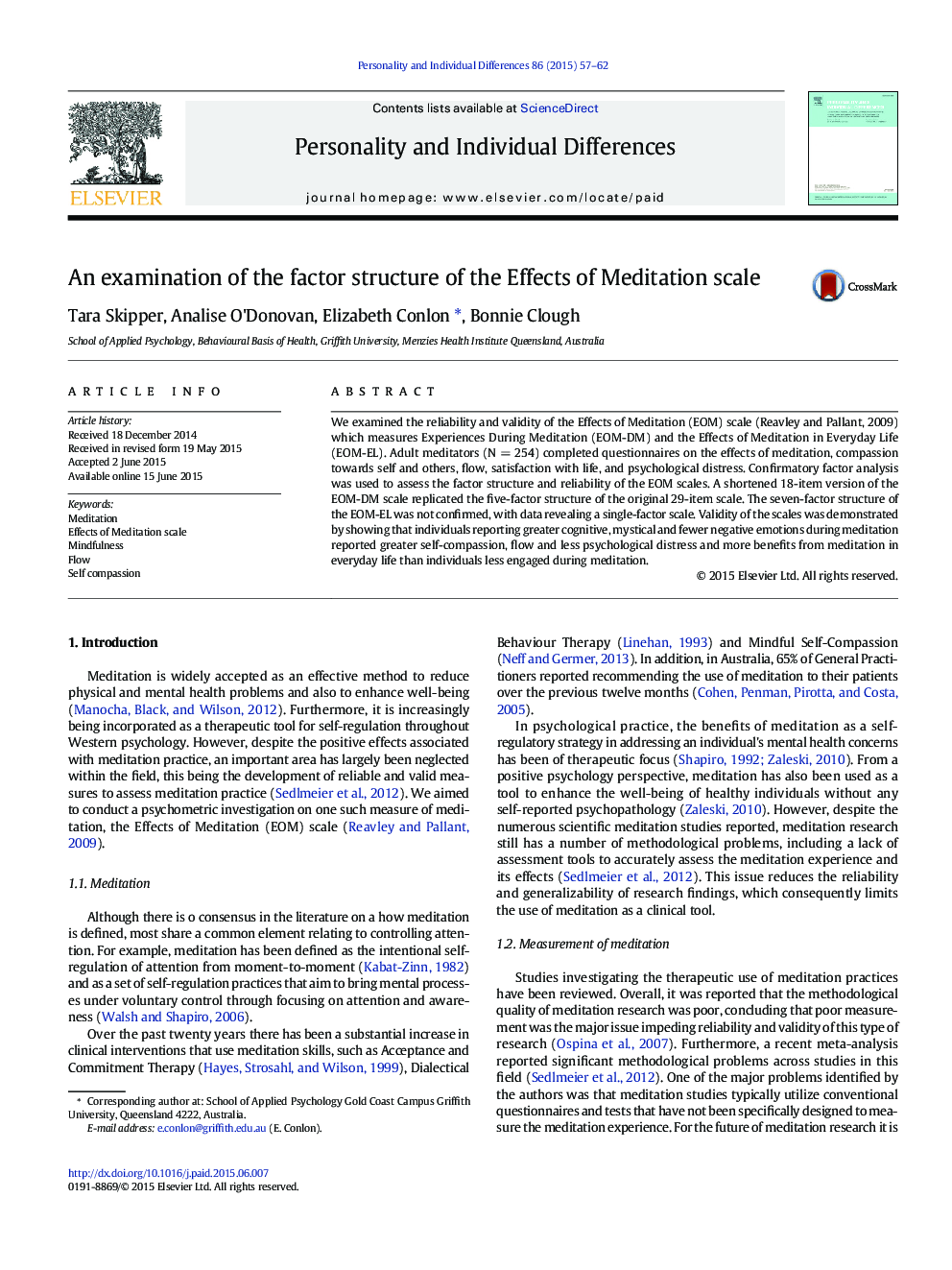| Article ID | Journal | Published Year | Pages | File Type |
|---|---|---|---|---|
| 889956 | Personality and Individual Differences | 2015 | 6 Pages |
•Meditation research has been hindered by a lack of empirically supported measures.•The EOMS is a recently developed scale designed to measure meditation experiences.•The factor structure and validity of the EOMS were examined in an independent sample.•Modified versions of the two EOMS subscales were found to be reliable and valid.•The modified EOMS has applications for meditation research and clinical practice.
We examined the reliability and validity of the Effects of Meditation (EOM) scale (Reavley and Pallant, 2009) which measures Experiences During Meditation (EOM-DM) and the Effects of Meditation in Everyday Life (EOM-EL). Adult meditators (N = 254) completed questionnaires on the effects of meditation, compassion towards self and others, flow, satisfaction with life, and psychological distress. Confirmatory factor analysis was used to assess the factor structure and reliability of the EOM scales. A shortened 18-item version of the EOM-DM scale replicated the five-factor structure of the original 29-item scale. The seven-factor structure of the EOM-EL was not confirmed, with data revealing a single-factor scale. Validity of the scales was demonstrated by showing that individuals reporting greater cognitive, mystical and fewer negative emotions during meditation reported greater self-compassion, flow and less psychological distress and more benefits from meditation in everyday life than individuals less engaged during meditation.
